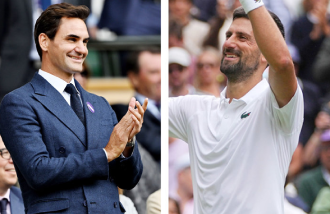[Opinion] Battery Gold Medals
[Opinion] Battery Gold Medals
Posted November. 11, 2004 23:14,
My head would be shaken violently shoes flew at my head I was given a sound thrashing in the head it was a nightmare. I would take a shower and handfuls of hair would fall out. I couldnt even sleep because my head hurt so badly.
There wasnt a day I trained without being beaten.
When I was being seized by the hair and tossed back and forth, there were many times I despised having been born a woman and having long hair.
When I was being beaten up, I couldnt see anything so I didnt know much, but when I saw others being pummeled, it scared me to death and it just hurt so much I thought I would go crazy.
I was beaten up black and blue. It is a miracle I am alive.
No, these are not horrific descriptions of the cruelty of some third-world prisoner-of-war camp or the shocking revelations of the military police. These are the confessions of world-class women short track racers representing South Korea, written proof of the inhumane torture and endless physical abuse of coaches. The very thought of such tears and beastly treatment behind all the peak performances that the athletes displayed in international competitions is utterly revolting. The fact that this is happening in a sport that is not even a combat event, but a record-category, and that all the victims are women and that two-thirds of them are just growing high school girls, is enough to make one sputter with fury.
There are many types of gold medals. The real medals are, of course, the pure golds and silvers and bronzes gleaned through sweat and effort, but there are also con medals achieved with dirty tricks, money medals plastered with greenbacks, doping medals rewarding record-breaking drug abusers, rat trap medals snatched by bribing the judges, foul medals stolen through much swindling, rigged medals achieved through rigged games, and transgender medals, achieved through imposter men acting as women. What is most embarrassing, however, are the battery medals, achieved through gruesome abuse and violence. It is a disgrace to citizens who belong in a 5,000-year-old culture that Korea has won medals in this humiliating category.
An ugly bond leaves wounds, but a beautiful farewell becomes a cherished memory. This is also true of medals. Even without a medal, hard training becomes golden memories, but medals won through abuse will become scars, instead of the stars that light Korea. Korea cannot dream of becoming a superpower in sports through abuse any further. If battery medals are honored as such, wife-battering husbands and child-molesting fathers will be justified, to say nothing of authoritarian political regimes. Even if we do not win a single medal, we must not beat our athletes. Spartan training and beating are 100 percent different and two different stories.
Oh Myung-chul, editorialist, oscar@donga.com





![[단독]김건희 논문 검증단 “이진숙, 제자 업적 가로채…지명철회 요구할것”](https://dimg.donga.com/c/138/175/90/1/wps/NEWS/IMAGE/2025/07/09/131969512.2.jpg)

